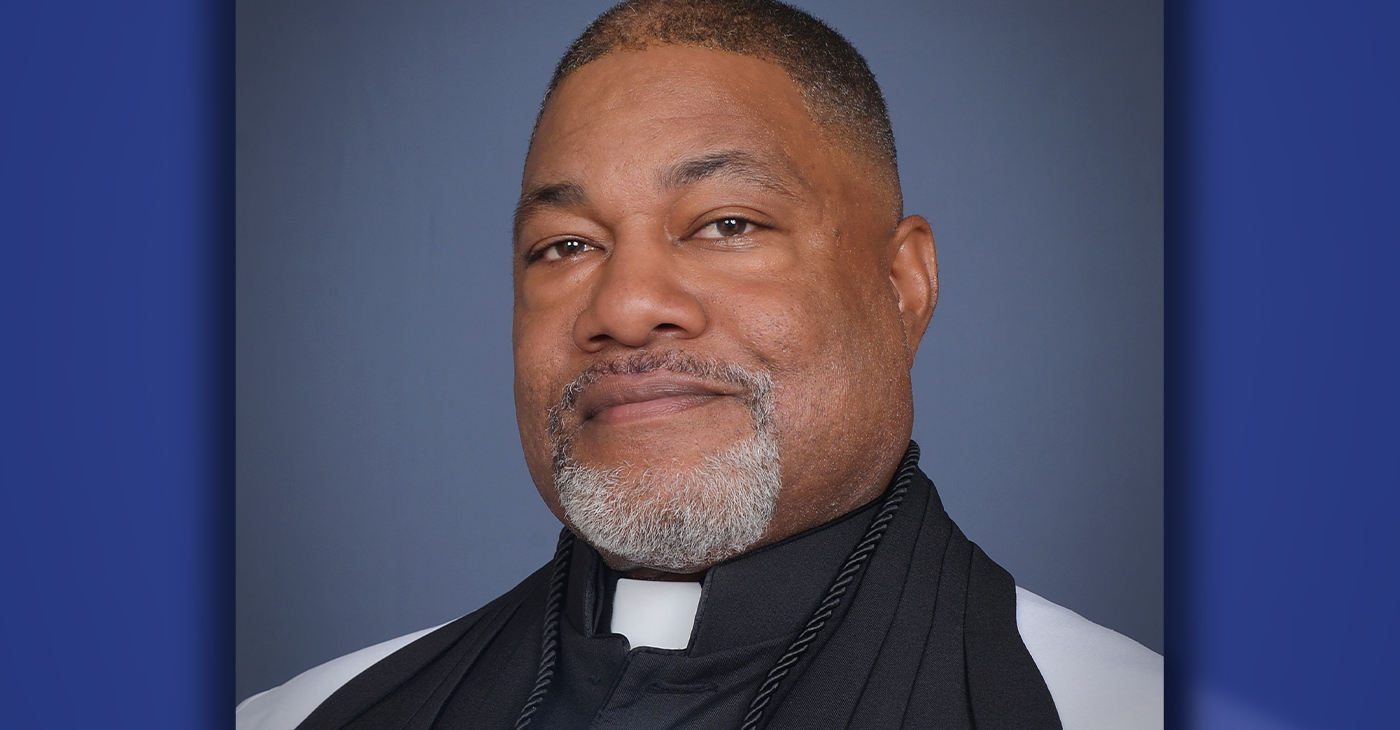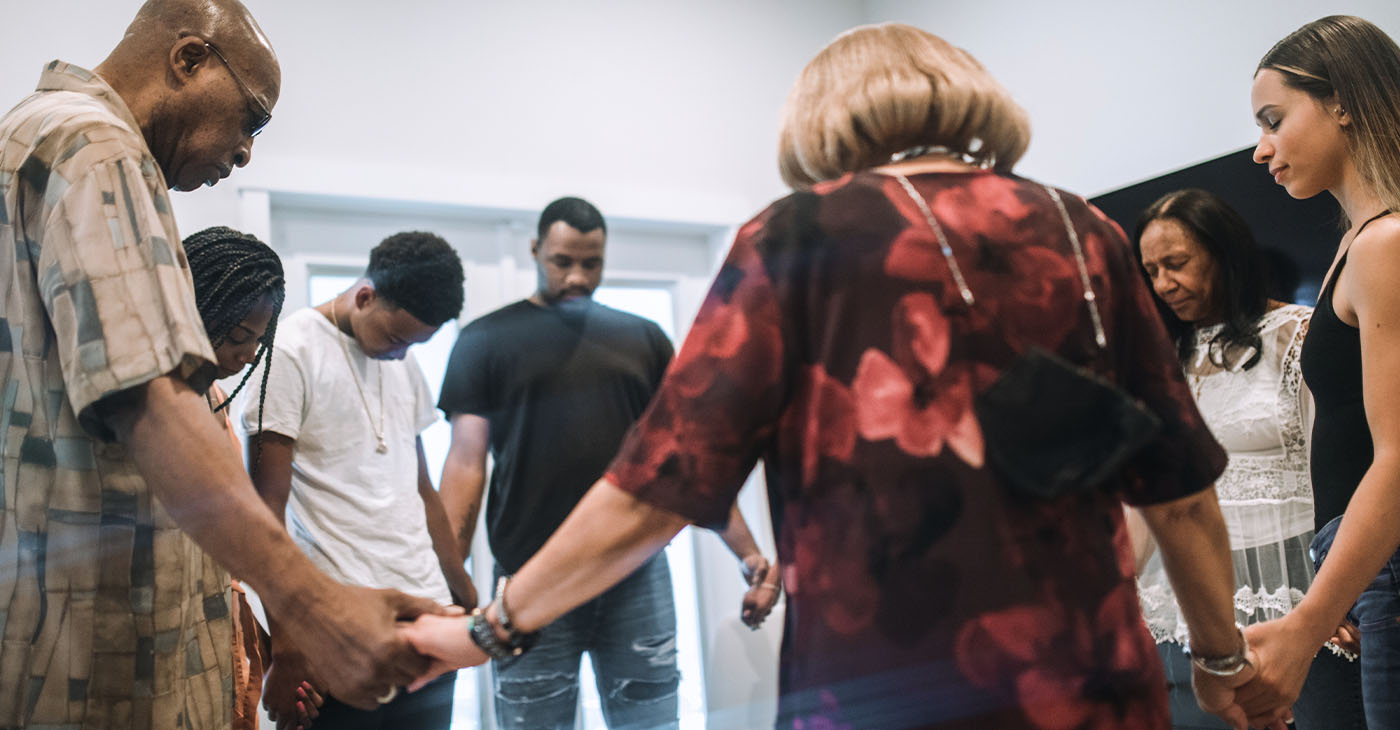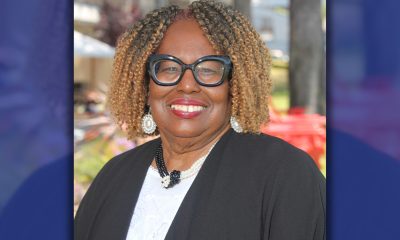Religion
THE RELIGION CORNER: Fear is Faith in Reverse
By Lyndia Grant
Special to the NNPA from The Washington Informer
Callers tell me they have saved this column. Some send it to others in times of trouble. To those who have never seen this column, I pray it will help you as well.
In fact, a reader called last week, upset that her newspaper containing this column had been destroyed accidentally. She saved this column for years, reading it, and holding on to it for herself and for others. It begins with this scripture: But the angel said to them, “Do not be afraid. I bring you good news of great joy that will be for all the people. Today in the town of David a Savior has been born to you; he is Christ the Lord.” – Luke 2:10-11.
What great things could happen in our lives if we would continue to stand on these promises today? What was the first thing the angel told the shepherd? “Do not be afraid.” This command is still valid today. We are charged to not be afraid. Fear is faith in reverse. Fear opens the door to our enemy.
For God hath not given us the spirit of fear; but of power, and of love, and of a sound mind. — 2 Timothy 1:7.
God didn’t create us with a “fear gene.” Fear didn’t enter into the garden until sin entered. Fear is from the enemy, pure and simple. The first time we find fear in the Bible is after Adam and Eve ate the apple. Suddenly, when they heard God walking through the garden, they had communed with Him daily before, yet now they hid themselves because they were ashamed and afraid.
When fear is in action, one has decided you cannot have whatever it is you want; you see the goal going in the other direction. Your goal moves away from you when you have fear. Fear and faith cannot and will not operate simultaneously. The minute you begin to feel fear, your goal moves backward. That’s your nonbelief at work.
When you say you can’t believe you got this job, you are offering up some negativity, and you may forfeit it.
We must practice speaking in the positive rather than the negative. Another example is when someone is planning an event, and as you’re planning you say something like “We can’t have an empty room; we’ve really got to get some people out to this event.” Death and life are in the power of the tongue. — Proverbs 18:21.
Well the “empty room” part of your comment will attract exactly what it is you’re saying. If instead you would say “The room will be filled for this event” and begin to be thankful for a filled room, then you’d be speaking life into your event. You will be speaking for a point of faith rather than fear.
When you examine your level of faith, all you need to do is look at your crop, what is it that you’ve been able to produce. “Makes you look at who planted the crop,” doesn’t it?
All you need to do is look in the mirror. It was you. It’s the truth that tells the mind what is really wrong. It’s not the economy; not elected officials; not the government. It’s me!
Like the old Negro spiritual. ‘It’s me, it’s me, It’s me, Oh Lord, Standing in the need of prayer; Not my mother, not my father; But it’s me, oh Lord; Standing in the need of prayer.”
It’s not what’s going on outside that’s the problem, it’s what’s going on within. Each of you must press toward the mark, but as you do so, keep your eyes toward your future; faith is the unseen. Scripture says “faith is the substance of things hoped for, and it is the evidence of things not seen.” Don’t put your faith in reverse!
Lyndia Grant is an author, inspirational and motivational speaker, radio talk show host and columnist. She can be contacted at 202-263-4621 and via email at lyndiagrant@gmail.com. Visit her new website at www.lyndiagrant.com and hear previous radio shows on https://soundcloud.com/pro/purchased/pro. Listen Fridays at 6 p.m. to her talk show on WYCB (1340 AM), a Radio One station.
Bay Area
Faith Tabernacle A.O.H. Church Welcomes New Assistant Overseer Edmund A. Singleton
The Faith Tabernacle A.O.H. Church of God in Richmond announced last week that it is honored to welcome Assistant Overseer Edmund A. Singleton II as our new Pastor and to introduce him to the Richmond community. At the 108th A.O.H National Pentecostal services on June 10, 2024, Asst. Overseer Singleton was appointed Pastor of the Faith Tabernacle A.O.H. Church by the National Presider, Bishop Lawrence Williams.

By Pamela Carter
When Jesus sent out his twelve disciples to minister the gospel he told them how they should conduct themselves as kingdom servants (Matt. 10:5–15). But he also spoke of the responsibility of the people to receive these ministers as his official representatives. Jesus insists that the way people receive his ministers reflects their relationship with God (Matt. 10:40). He invites God’s people to welcome “a prophet in the name of a prophet” and “to receive a righteous man’s reward” (v. 41).
The Faith Tabernacle A.O.H. Church of God in Richmond announced last week that it is honored to welcome Assistant Overseer Edmund A. Singleton II as our new Pastor and to introduce him to the Richmond community.
At the 108th A.O.H National Pentecostal services on June 10, 2024, Asst. Overseer Singleton was appointed Pastor of the Faith Tabernacle A.O.H. Church by the National Presider, Bishop Lawrence Williams.
His official installation services will be on Oct. 19, 2024, at 6 p.m. PT. Pastor Singleton will be the 3rd Shepard appointed to this ministry over its 69-years of existence.
Singleton, originally united with the Faith Tabernacle church in 1993, under the leadership of Bishop George and Elder Verley Ayers. He served diligently on various ministries, including Youth Department, Deacons, Ushers, an the Choir.
In 2001, the Lord called him to the ecclesiastic ministry. He began his studies and tutelage to receive his Reverend licenses in 2003. At the request of Bishop Ayers, he studied and passed his Elder’s exam and was ordained an Elder at the 90th Pentecostal meeting in 2006. In 2021, he was elevated to Assistant Overseer of the Western Region Diocese by Bishop Lawrence Williams.
In 2020, Pastor Singleton founded the Jehu Unchained Podcast, a Christian show to help individuals discover who God is and the benefits of being a born-again believer. His listenership continues to grow and has spread worldwide. In 2021, he launched the Jehu Unchained non-profit organization, geared to encouraging and supporting the youth in our community.
Pastor Singleton is a native of Oakland and a graduate of Kennedy High School in Richmond. He attended Contra Costa college and has worked in the construction industry for over 30-years.
Pastor Singleton is blessed to be married to his wife, Sister Kristie Palmer, for 27 years. They have two children, Edmund, III and Kayla.
As a husband and father, he brings a bit of wisdom, a sense of humor and a love for God’s people. He as a passion for the youth and witnessing the transformation of souls by the power of God.
#NNPA BlackPress
COMMENTARY: Prayer is Your Power
Terrible things happen to good people often. We live in an unjust world with people making decisions that are informed more by profit than people. We cannot take those principles into our relationship with God. We must believe that “… all things work together for good to them that love God, to them who are the called according to His purpose.”

Faithful Utterances
By Dr. Froswa Booker-Drew | Texas Metro News
This week, a friend informed me that she was following the ambulance to the hospital with her husband. Her husband was going through a major health crisis. She wasn’t the only one who reached out—a friend’s mother had unexplained pain and another friend contacted me about her friend’s son who was hospitalized with pneumonia. Each of them asked that I pray for them.
I consider it an honor to pray for others. Prayer is powerful and I love that I have a group of friends who I can turn to that I call the “prayer warriors” that when I send a text to lift up the concerns and issues of others before God, they go into battle mode.
Prayer is a weapon and I think many of us don’t understand its power until we need it. For many of us, it’s a routine, something that’s more about religion than it is about relationship. We have gotten prayer twisted as some exchange solely for stuff. God is not a celestial Santa Claus dropping off gifts. Prayer is an opportunity to go before to God sincerely in relationship. “And when you pray, you must not be like the hypocrites. For they love to stand and pray in the synagogues and at the street corners, that they may be seen by others.
Truly, I say to you, they have received their reward. But when you pray, go into your room and shut the door and pray to your Father who is in secret. And your Father who sees in secret will reward you. And when you pray, do not heap up empty phrases as the Gentiles do, for they think that they will be heard for their many words. Do not be like them, for your Father knows what you need before you ask Him.” (Matthew 6:5–8)
Prayer is about faith. It is believing that God hears us. “Let us then with confidence draw near to the throne of grace, that we may receive mercy and find grace to help in time of need.” (Hebrews 4:16) I realize that my prayers are even more powerful when I am in relationship with others seeking God: “For where two or three are gathered in my name, I am there among them” (Matthew 18:20). It’s dangerous when we see prayer as a way to manipulate God into doing what we want. There is nothing wrong with bringing your requests before God but it’s important to check our motivation and intention. It’s also important to know that just because God doesn’t answer our prayers in the way that we want does not mean that God doesn’t love us.
It doesn’t mean that God does not hear us. It does not negate the omnipotence or goodness of God, either. We must believe that God is able. “And without faith it is impossible to please God, because anyone who comes to him must believe that He exists and that He rewards those who earnestly seek him.” (Hebrews 11:6) It’s easy to blame God when things don’t go the way we want them to—”the rain falls on the just and the unjust” (Matthew 5:45).
Terrible things happen to good people often. We live in an unjust world with people making decisions that are informed more by profit than people. We cannot take those principles into our relationship with God. We must believe that “… all things work together for good to them that love God, to them who are the called according to His purpose.” (Romans 8:28) …. God is concerned with our hearts, with people and cares for us even when things don’t go the way we’d like. I can report that all of the individuals we prayed for had excellent results.
God is good! Yet, I realize that this isn’t always the case. Prayer is powerful. God wants us to have this daily form of communication. 1 John 5:14, tells us: “And this is the boldness we have in Him, that if we ask anything according to His will, He hears us.” Don’t use prayer just when you need something. Just as all relationships require consistent communication for growth and results, the same is even more important in our relationship with God. Prayer is a powerful partnership with God that can move mountains when we believe!
Dr. Froswa’ Booker-Drew is the host of the Tapestry Podcast and the author of three books for women. She is also the Vice President of Community Affairs for the State Fair of Texas. To learn more, visit drfroswa.com.
Black History
AFRICAN-ISH: The First Christmas Story
Both Joseph and Mary were of the lineage of David, Joseph descended from David’s son Solomon (and Bathsheba), and Mary extended from another son Nathan. Therefore, they were required to go to the little town of Bethlehem, in Judea and there, in a cattle shed Jesus was born. (Bethlehem is 70 miles south of Nazareth and 5 miles southwest of Jerusalem).

By Simon Burris
The narrative of Jesus’ birth and proof of his Hamitic (Black) African bloodline* began in the Old Testament in the book of Genesis chapter 10, in the Land of Ham, located in southwest Asia and Africa. Three most prominent Hamitic personalities: Abraham, Isaiah and David.
People and places of Hamitic origins are underlined.
(1) Abraham the patriarch was Babylonian (Ethnic Ethiopian). Gen. 11:31; (2) Isaiah a prophet lived 750 years before Christ, predicted the virgin birth was a nephew of Amaziah a Judahite (Canaanite) king; and (3) David the great king of Israel was a descendant of Abraham, also of Tamar and Rahab (Canaanites).
The (Hamitic) Genealogy of Jesus Christ: Matthew 1:1-17; Luke 3:23-34
The Birth of Jesus: (about 6-4 BC)
Mary the virgin mother of Jesus and her husband Joseph the “foster” father of Jesus, a carpenter, lived in Nazareth, a town in northern Palestine.
At this time Emperor Augustus of the Roman Empire decreed that a census would be taken. Everyone in his domain had to go to his or her hometown to register. He probably ordered Cyrenius ( Quirinius ) the Afro Roman governor of Syria / Judeadistrict to take charge and supervise the mandate.
Both Joseph and Mary were of the lineage of David, Joseph descended from David’s son Solomon (and Bathsheba), and Mary extended from another son Nathan. Therefore, they were required to go to the little town of Bethlehem, in Judea and there, in a cattle shed Jesus was born. (Bethlehem is 70 miles south of Nazareth and 5 miles southwest of Jerusalem).
A short time later shepherds from the countryside as well as Wise Men (Magi) from neighboring countries Arabia, Babylonia,and Persia traveled to the nativity site, paid homage and worshiped the infant-Savior.
Now Joseph was warned by the Lord in a dream that Herod the Edomite king of Judea was plotting the murder of the child, fled with his family to Egypt, returning to Nazareth after the death of Herod.
Jesus had siblings, brothers Joseph, Simon, Epistle writers James, Jude, and several sisters. The last mention of Joseph occurs in the Gospel of Luke when he and Mary take the 12-year-old Jesus to Jerusalem. Mary played a vital role all through Jesus’ life, from the day He was born till the time of the crucifixion.
Conclusion: The four Gospels: Matthew, Mark, Luke and John chronicled the full theme of Christ as the universal Savior. *Descendants of Ham’s sons Cush (Ethiopia), Mizraim (Egypt), Put (Libya) and Canaan (Ancient Palestine/Israel). Genesis 10: 6-20
Footnotes: Why is Christmas celebrated on December 25?
The ancient Romans celebrated the winter solstice on December 25 as the birthday of the SUN; the Babylonians and Persians -SON of the SUN. Some 300 plus years after Jesus’ earthly demise, Roman Emperor Constantine in 336 legalized this date as the birthday of the SON of GOD – JESUS the CHRIST! Originally: Christ’s Mass.
Eurocentric racism: Pope Julius II in 1508 commissioned Michelangelo, Raphael and other Renaissance artists and church scholars to portray and depict almost all major biblical characters as Europeans (Caucasians), save servants and slaves.
-

 Activism3 weeks ago
Activism3 weeks agoBooks for Ghana
-

 Arts and Culture4 weeks ago
Arts and Culture4 weeks agoPromise Marks Performs Songs of Etta James in One-Woman Show, “A Sunday Kind of Love” at the Black Repertory Theater in Berkeley
-

 Bay Area3 weeks ago
Bay Area3 weeks agoGlydways Breaking Ground on 14-Acre Demonstration Facility at Hilltop Mall
-

 Activism4 weeks ago
Activism4 weeks ago‘Donald Trump Is Not a God:’ Rep. Bennie Thompson Blasts Trump’s Call to Jail Him
-

 Activism3 weeks ago
Activism3 weeks agoLiving His Legacy: The Late Oscar Wright’s “Village” Vows to Inherit Activist’s Commitment to Education
-

 Arts and Culture3 weeks ago
Arts and Culture3 weeks agoIn ‘Affrilachia: Testimonies,’ Puts Blacks in Appalacia on the Map
-

 Alameda County3 weeks ago
Alameda County3 weeks agoAC Transit Holiday Bus Offering Free Rides Since 1963
-

 #NNPA BlackPress4 weeks ago
#NNPA BlackPress4 weeks agoCalifornia, Districts Try to Recruit and Retain Black Teachers; Advocates Say More Should Be Done






















































